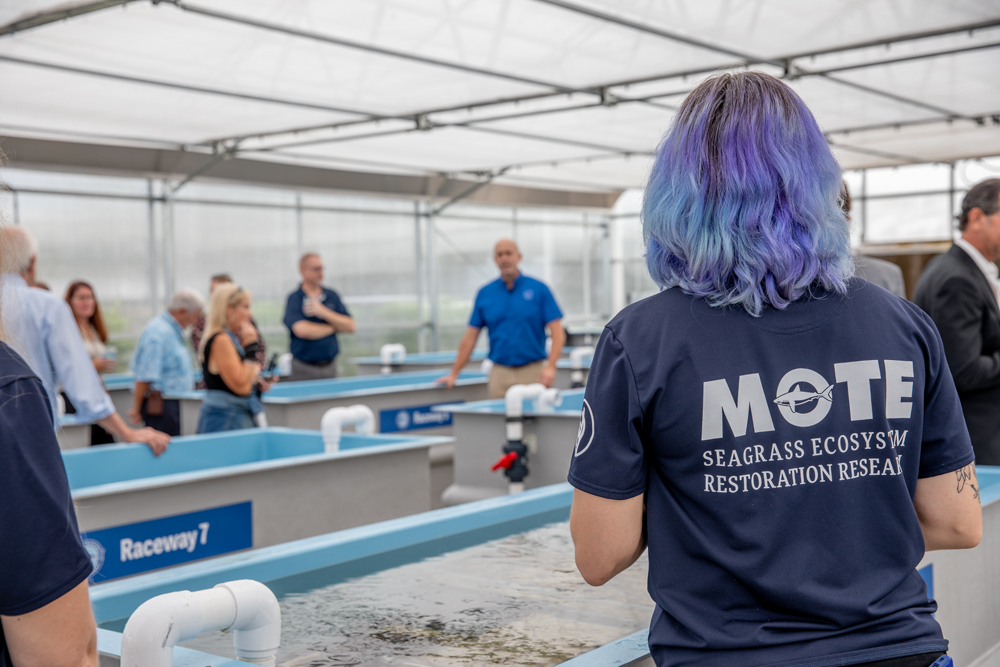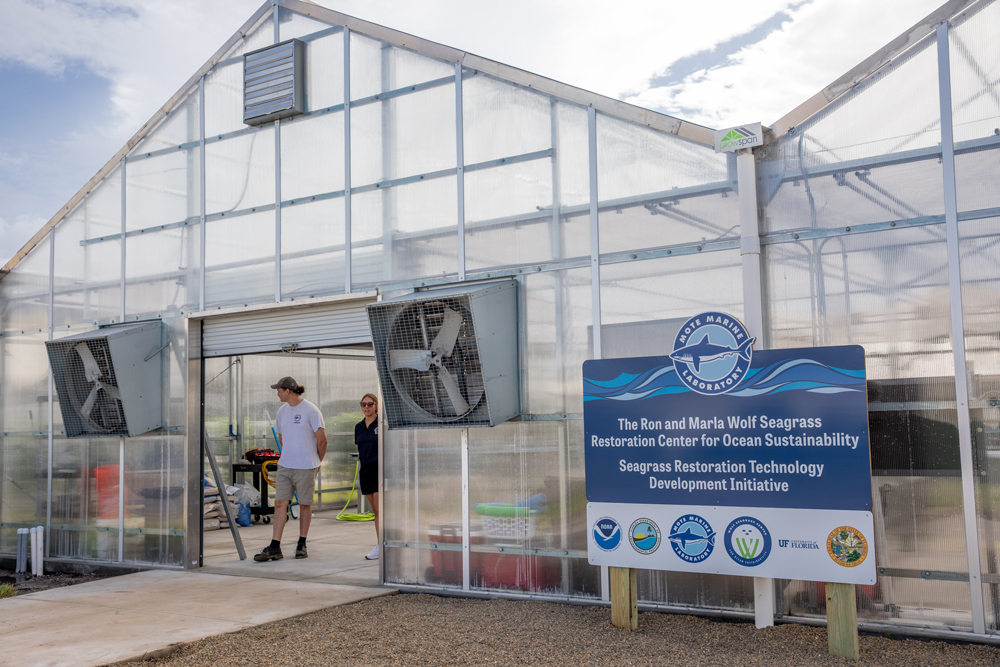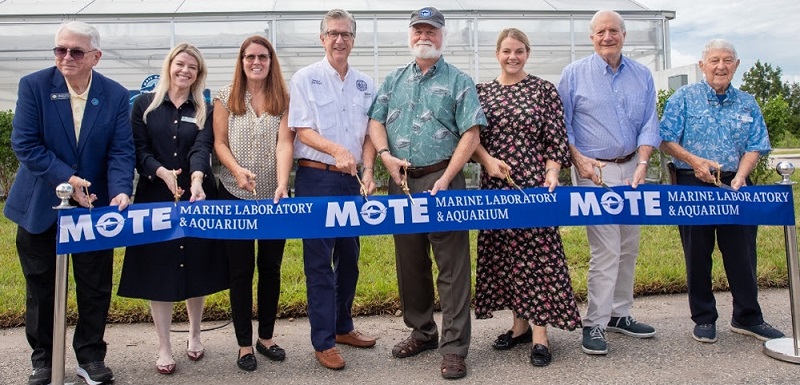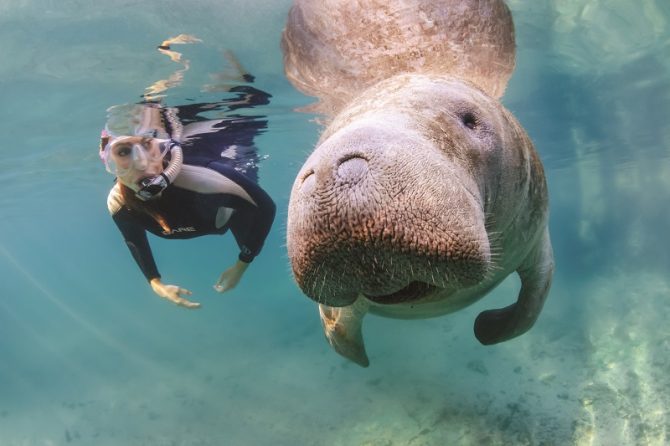Mote Marine Laboratory & Aquarium marked a major milestone in ocean sustainability on August 25 with the ribbon-cutting of three cutting-edge research facilities aimed at restoring Florida’s imperiled seagrass ecosystems.
The new facilities, the Ron and Marla Wolf Seagrass Restoration Center for Ocean Sustainability Greenhouse Facility, the Biogeochemical Carbon Sequestration Lab, and the Publix Seagrass Genetics Research Hub, form Mote’s Seagrass Ecosystem Restoration Research Compound (SERRC) at the Mote Aquaculture Research Park.
The Seagrass Restoration Technology Development Initiative was launched in 2023 to combat seagrass decline through cost-efficient and environmentally sustainable methods.
“These new facilities provide a transformational leap forward in Mote’s mission to restore Florida’s vital seagrass meadows,” said Dr. Michael P. Crosby, Mote’s president and CEO. “Through powerful partnerships, innovative technologies, and a science-driven approach, Mote is advancing restoration solutions that will benefit our coastal ecosystems, economies, and communities for generations to come.”
Seagrass meadows provide essential habitats for marine life, improve water quality, stabilize shorelines, and capture carbon. Yet they are disappearing rapidly due to dredging, runoff, water clarity issues, and climate change.

The new facilities will target seagrass restoration from multiple angles:
- The Ron and Marla Wolf Seagrass Restoration Center for Ocean Sustainability Greenhouse Facility offers a controlled environment to test salinity, temperature, turbidity, and grazing impacts, helping identify genotypes resilient to environmental stressors.
- The Biogeochemical Carbon Sequestration Lab is the first of its kind at Mote, focusing on seagrass sediment processes and carbon sequestration, with the potential to develop carbon credit strategies to fund ongoing restoration.
- The Publix Seagrass Genetics Research Hub will serve as the world’s first international seagrass genetics library, mapping and propagating resilient genotypes to withstand global environmental stress.
Philanthropic and corporate partnerships played a critical role in the expansion. The Wolf Family Foundation and Publix Super Markets joined federal and state agencies to support the project.

Maria Brous, Publix’s director of communications, said the company is “excited to see the positive impacts of the work Mote is conducting across Florida and beyond.”
In addition to its Sarasota facilities, Mote is partnering with DEP and NOAA to establish a new seagrass nursery and research site at Bahia Honda State Park in the Florida Keys, advancing restoration while supporting education and public engagement.
The expansion underscores Mote’s nearly 70-year mission to drive ocean science and restoration through research, innovation, and public-private collaboration.
More information is available at mote.org/seagrass





